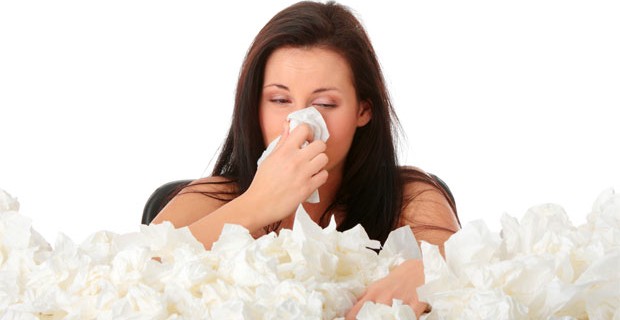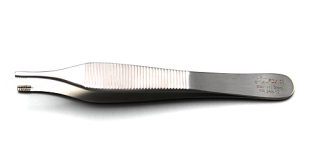Learn all about gustatory rhinitis symptoms, causes and treatment. The term rhinitis is usually associated with hay fever. However, rhinitis actually classifies a variety of sinus issues, both allergic and non-allergic. Non-allergic rhinitis is classified into different types depending on the cause. Types of non-allergic rhinitis include autonomic, vasomotor, hormonal, drug-induced, atrophic, gustatory rhinitis and rhinitis medicamentosa.
Gustatory rhinitis is a medical term that is used to describe a food-related runny nose and is caused by an overreaction of the body’s vagal nerve in the nervous system. Gustatory rhinitis is the subtype of non-allergic rhinitis that involves runny nose and or postnasal drip after eating.
Gustatory rhinitis is usually triggered by spicy foods. In the past, studies such as one published in 1989 in the Journal of Allergy and Clinical Immunology, have shown that spicy foods stimulate mucus production in people with gustatory rhinitis.
Non-allergic rhinitis can affect children and adults, but is more common after age 20. Triggers of non-allergic rhinitis symptoms vary and can include certain odors or irritants in the air, changes in the weather, some medications, certain foods, and chronic health conditions.
To prevent gustatory rhinitis occurrence one must stay away from food and drinks that trigger the condition. Some health care providers may recommend use of antihistamine nasal sprays one hour before mealtime to reduce the intensity of nasal discharge and other symptoms. However, since the condition is not caused by the response of the body’s immune system and there is no release of histamines, antihistamines cannot effectively treat gustatory rhinitis.
What is Gustatory Rhinitis?
Gustatory rhinitis has nothing to do with a systemic allergic reaction it is simply an overreaction of the vagal nerve in the nervous system of the person consuming the particular type of food. It will cause nasal drip of a clear liquid and sometimes congestion and runny nose.
Gustatory Rhinitis Definition
“Gustatory rhinitis” is the term used to describe the sudden onset of watery nasal discharge with eating, especially foods that are spicy or heated (such as soup).
Gustatory Rhinitis Symptoms
Running nose is the main symptom of gustatory rhinitis. The person experiences running nose soon after eating or drinking certain types of food, especially hot and spicy.
Few people may also complain of postnasal drip, nasal congestion (stuffy nose), coughing and sneezing.
The discharge is profuse, watery and thin. It occurs as a result of dilatation of tiny blood vessels of the nasal lining. The symptoms appear during or within few minutes after eating the offending food. This is the characteristic feature of gustatory rhinitis.
Gustatory Rhinitis Causes
Gustatory rhinitis is caused by overreaction of the vagal nerve in the nervous system of a person when he or she ingests certain foods. The leading cause of gustatory rhinitis is consumption of hot and spicy food, but alcohol intake can be the culprit too. Also, food preservatives and colorings can sometimes cause gustatory rhinitis. Although hot and spicy foods are the prominent cause for gustatory rhinitis, they are not the only ones.
There are many other foods that are responsible for the condition. Here are some of the foods responsible;
- Hot chili pepper, as it contains capsaicin
- Hot and spicy food
- Chocolate
- Coffee, tea
- Tomatoes
- Alcohol
- Vinegar
- Oranges, lemon and other citrus fruits
Some medications can cause non-allergic rhinitis. These include aspirin, ibuprofen (Advil, Motrin IB, others), and high blood pressure (hypertension) medications, such as beta blockers.
Non-allergic rhinitis can also be triggered in some people by sedatives, antidepressants, oral contraceptives or drugs used to treat erectile dysfunction. Overuse of decongestant nasal sprays can cause a type of non-allergic rhinitis called rhinitis medicamentosa.
Gustatory Rhinitis Treatment
Treatment of non-allergic rhinitis depends on how much it bothers you. The treatment will be unique for each patient and their cause of the symptoms.
- The prescription drug ipratropium (Atrovent) is often used as an asthma inhaler medication.
- Try a prescription antihistamine spray such as azelastine (Astelin, Astepro) and olopatadine hydrochloride (Patanase).
- Consulting an otolaryngology specialist may be the best course of action if this condition bothers or embarrasses you at mealtimes.
- Homeopathic drugs that may help with the symptoms include:
- Silicea
- Rumex
- Pulsatilla
- Drosera
- Allium cepa
These drugs will naturally resolve the symptoms of gustatory rhinitis in about 3 hours. This treatment may taper your symptoms so that it may be cured completely. It’s important to talk to your health care provider before you self-medicate. Available over-the-counter or by prescription, examples include pseudoephedrine-containing drugs (Sudafed) and phenylephrine (Afrin, Neo-Synephrine, others). These medications help narrow the blood vessels, reducing congestion in the nose. Possible side effects include high blood pressure, heart pounding (palpitations) and restlessness.
 Health & Care Information
Health & Care Information 


